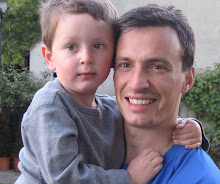It is a scene reminiscent of England. Rolling hills, green fields, muddy tracks.
But this isn't England. A line of us are walking single file approaching the Muslim village of Leffe in the Siltie region of central Ethiopia. It is the rainy season and on the surface at least, all seems lush and fertile.
But the green vegetation flatters to deceive. The water table remains dangerously low and access to clean water is the single greatest challenge facing the villagers we are about to meet.
As I climb up a bank, what confronts me needs to be seen to be believed. Half a dozen women are wading knee deep in turgid, brown coloured water. They are helping each other fill brightly coloured jerry cans as part of a daily routine to collect the 20 litres of water they need. Buzzing mosquitoes surround them – this is their natural breeding ground and malaria is a real and ever present threat.
I speak with one of the women, Fatima Ahmed, who is carrying her three year old daughter on her back as she collects water. She tells me that she sometimes she sees worms swimming in her water but she has limited choice. The only alternative is a one and half hour walk to the nearest stream.
In a neighbouring village, I saw women digging sand wells in the riverbed. The women dig up to three metres deep and wait for water to infiltrate through the sand. They spend seven hours every day digging, waiting, collecting and walking. Day in, day out - collecting water has become their life.
This situation is typical in rural communities where access to drinking water is as low as 3%. Despite claims by the Ethiopian Government to provide water for all through a universal access program, communities across Ethiopia, aren’t holding their breath. The only way Leffe village will gain access to water in the forseeable future is a planned Christian Aid project which aims to provide 53,000 people with accessible water within 1km of their homes. Leffe is one of the 18 target villages and understandably Fatima said that this project would transform her life. It would give her the time to earn a living, to look after her children and to plan for the future.
That prospect is only threatened by £440,000 needed to leverage a further £1.2million from the European Commission to fund this project . It seems a small price to pay for the social return it will generate.
There is an Ethiopian saying that water and mothers are the same – both are considered good. But the sight of women collecting dirty water reminds me that not all water is good. It certainly isn't reminiscent of England.
Monday, July 16, 2007
Subscribe to:
Post Comments (Atom)




No comments:
Post a Comment